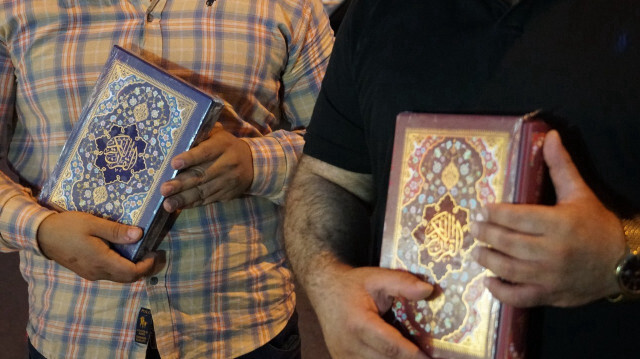
Recent attacks on Quran show 'growing religious hatred,' says Turkish deputy foreign minister
Following a surge in incidents of burning of Islam's holy book, the Quran, Türkiye on Tuesday called on international authorities to take necessary measures and prevent the recurrence of such attacks.
Addressing an urgent session on Acts of Religious Hatred at the UN Human Rights Council via a video message, Yasin Ekrem Serim, Türkiye’s deputy foreign minister, said: "We deeply condemned recent public burnings of the Holy Quran, which are clear manifestations of growing religious hatred."
He emphasized that any form of disrespect toward any holy book contradicts the principles of tolerance, social peace and respect for human dignity.
"Freedom of expression is a cornerstone of society, but it cannot be misused to spread hatred. It is unacceptable to allow these acts on the grounds of freedom of expression. We call on all authorities to take necessary action against perpetrators of these acts and to prevent recurrence of such incidents," he said.
Serim added: "Türkiye, with vast majority of Muslim population and as a member and partner of all Western organizations like Council of Europe, NATO and also an EU candidate, will continue to support initiatives against anti-Islam sentiments."
Reaffirming Türkiye's commitment to combat hatred and discrimination, the Turkish official expressed Ankara's willingness to collaborate with all countries at bilateral and multilateral levels to address this issue.
"We call on all countries to support this resolution to give a clear united message against acts of hatred which threatened not only Muslims, but all humanity," he said.
Last month, a person identified as Salwan Momika burned a copy of the Quran under police protection in front of the Stockholm Mosque in Sweden.
His provocative act was timed to coincide with Eid al-Adha, one of the major Islamic religious festivals celebrated by Muslims worldwide.
It elicited widespread condemnation from across the Islamic world, including Türkiye, Jordan, Palestine, Saudi Arabia, Morocco, Iraq, Iran, Pakistan, Senegal, and Mauritania.

